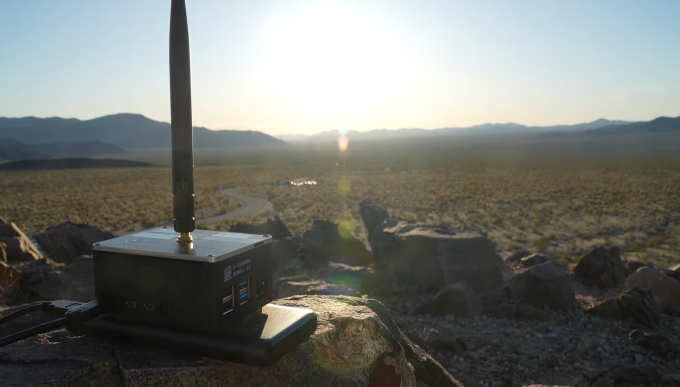Wi-Fi HaLow, a short-range data transmission technology, is expected to replace mobile waves when reaching a transmission distance of 15.9 km.

Morse Micro, a developer of HaLow Wi-Fi microprocessors in Sydney, Australia, announced on September 15 that it had set a new record for the range of Wi-Fi using the HaLow (802.11ah) standard in a test in Joshua Tree National Park, California, USA. At 15.9 km, the test broke the record of 2.9 km set at the San Francisco beach area in January.
Specifically, the connection speed of the previous test at San Francisco Beach ranged from 11 Mbps at a distance of 500 meters to 1 Mbps at a maximum distance of 2.9 kilometers. Meanwhile, the new test showed that HaLow's throughput reached 2 Mbps at a distance of 15.9 kilometers. This is considered a great achievement, although Joshua Tree National Park is an environment that is considered to have less "interference" compared to a densely populated place like San Francisco Beach.
According to Morse Micro, with a range of 15.9 km, HaLow is capable of transmitting data the farthest among existing wifi standards. Its applications include agriculture, short-distance communication, without relying on expensive mobile data and depending on the strength of mobile signals in each area. In urban areas, this technology may not be necessary due to the dense wifi network and mobile signal towers.
Tom's Hardware says HaLow's technology is "pretty impressive and hard to beat anytime soon." The site also predicts that the Australian company won't stop at 15.9 km, but will expand to a larger range with higher transmission capacity.
Morse Micro was founded in 2016 and specializes in developing chips and solutions for HaLow Wi-Fi. While not the only one, the company’s chips are highly regarded for their small size, high data rates, long range, and low power consumption. In addition to its headquarters in Australia, the company has offices in the US, China, India, the UK, and recently Taiwan.
TB (according to VnExpress)